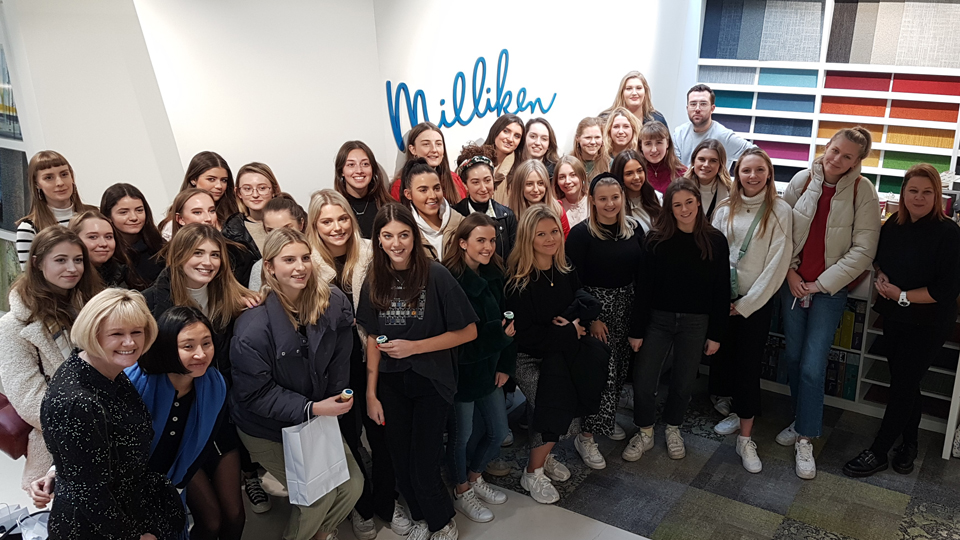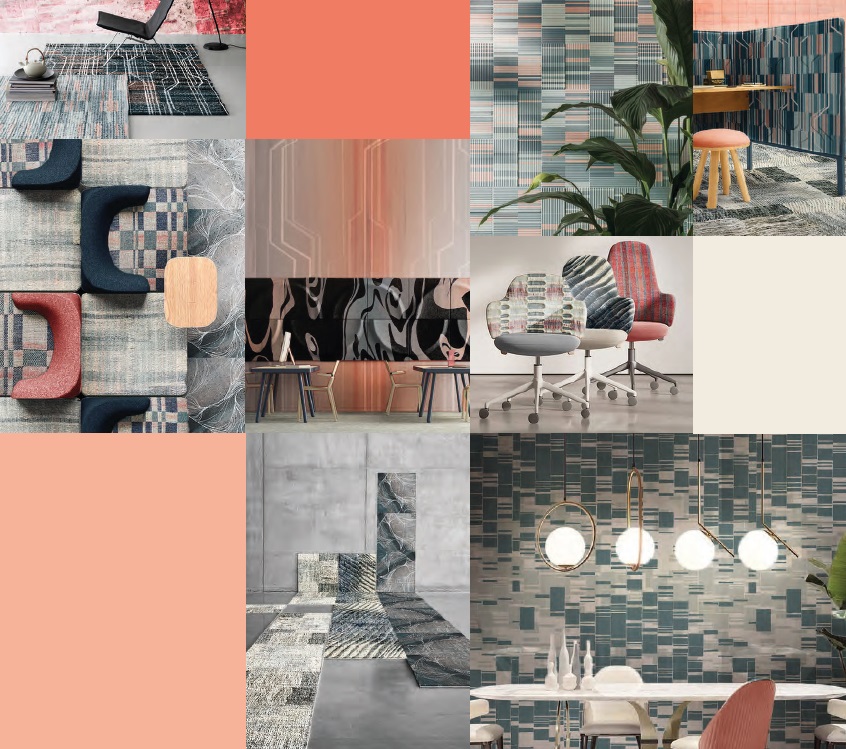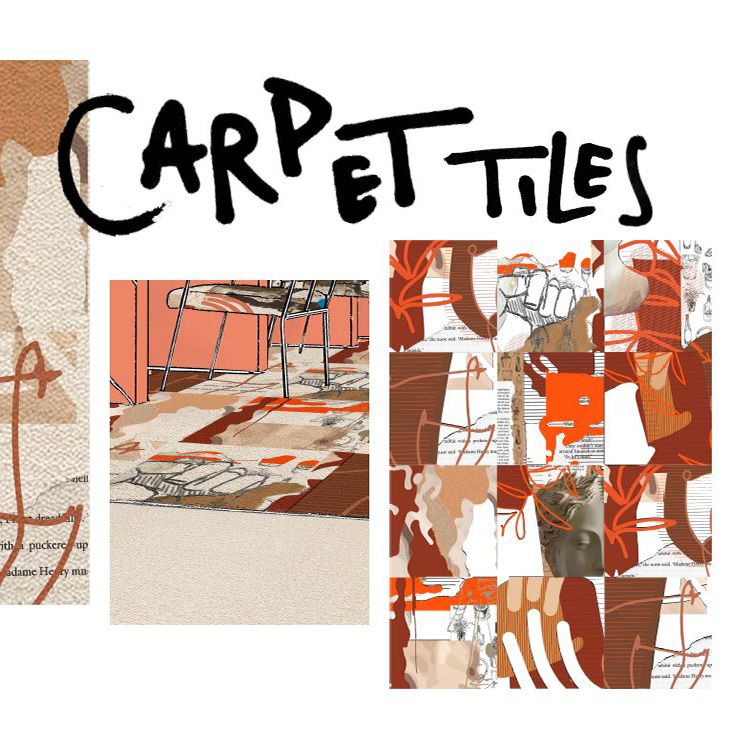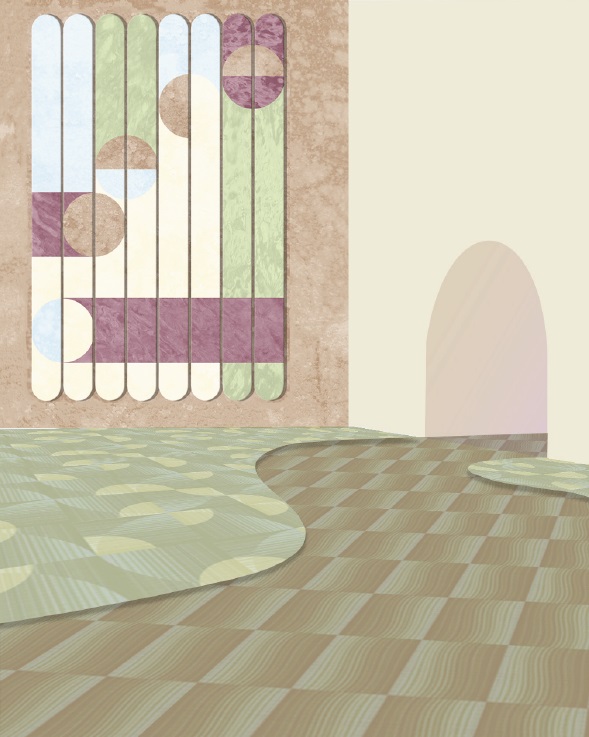, Programme Director, Textile Design at Loughborough University explains:
“The first lockdown was a staggering sledgehammer on all our lives and that was no different for our students who reverted to remote learning and digital submissions. The students were tremendous in their earnest efforts to continue and produced some extraordinary outcomes. The Milliken team were still able to provide support and feedback. They assessed incredibly diverse portfolios to deliver the winners through a virtual Zoom announcement event. It was a joyous moment in testing times and we're incredibly grateful for Milliken tackling the challenge with us head-on.”
The aim of the initiative is toencourage students to explore the broad contexts and applications of textiles, considering social responsibilities, sustainability, and advanced technologies. Milliken Design Manager Kerry Cottam explains:
“Working with Loughborough University enables us to look to the future and see the emerging talent. Milliken offers students the opportunity to learn about different techniques; how to work on a different surface and the potential of Milliken’s patented Millitron® patterning technology. We spoke to the students individually (virtually this year) and sent feedback; they were so professional, confident and enthusiastic. For me it’s about keeping our eyes in the world and giving something back, especially in this climate. We loved looking at the students’ work – they are the future.”
Kit Neale expands:
“It's an exciting and inspiring partnership, opening students' eyes to commercial design trends and technologies. It challenges our students to create imaginative, innovative, and intelligently designed textiles for ambitious interior settings that Milliken's in-house design teams work in. Students join our program because we proudly boast strong industry connections and access to influential design brands across various disciplines, including fashion and interiors. This project is a valuable opportunity for our students to develop new design approaches using traditional methods as well as emerging technologies through a live brief. Milliken's design team introduces the project and students get the opportunity to gain feedback throughout the development stages, as well as the exciting chance to have their designs turned into a real product exhibited in the London Showroom. I believe it to be fundamental for corporations and universities to work together in partnership in various ways, including project led initiatives like this. Universities are key economic players in shaping the future of the design industries as we support and train students to be future leaders and creative thinkers.”
This year’s winner is Annabelle Loweth, a visually impaired hand weaver and textile designer based in London. Her most recent work focuses on juxtaposing natural features with architectural environments. Having been born with a severe visual impairment, Annabelle has the opportunity to observe the world from a unique and distinct perspective. She focusses on the more defining details: textures and close structures of media that others may overlook. Annabelle’s project ‘Organic Architect’ is a juxtaposition between architectural structures and the natural environment. The second prize went to Dani Nash, a London based textiles and print designer whose main inspirations are drawn from London’s skate and streetwear culture. The third place winner Morgane Dumasgrew up in a small village on the Cornish coast, where she observed both the power and vulnerability of nature up close.



